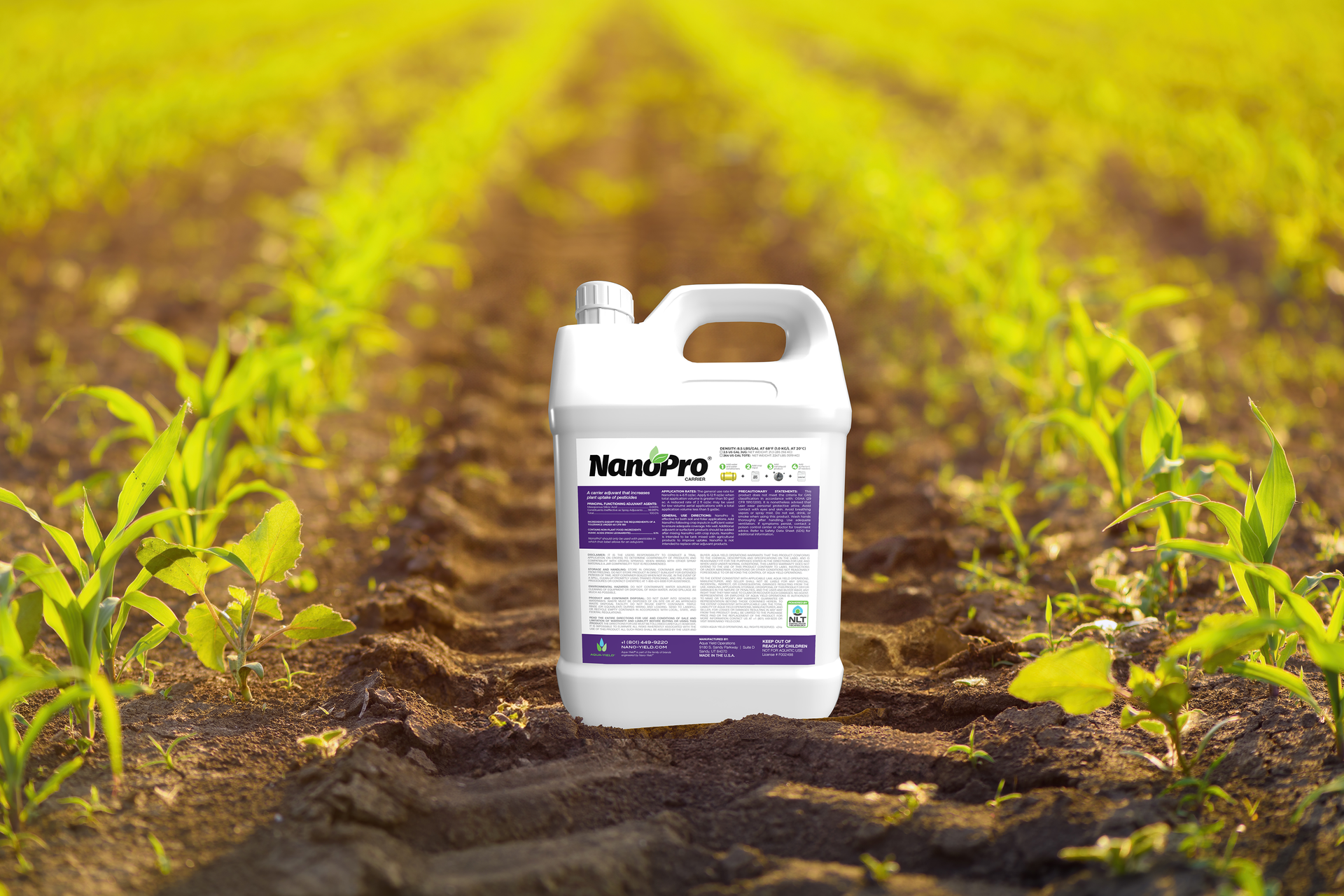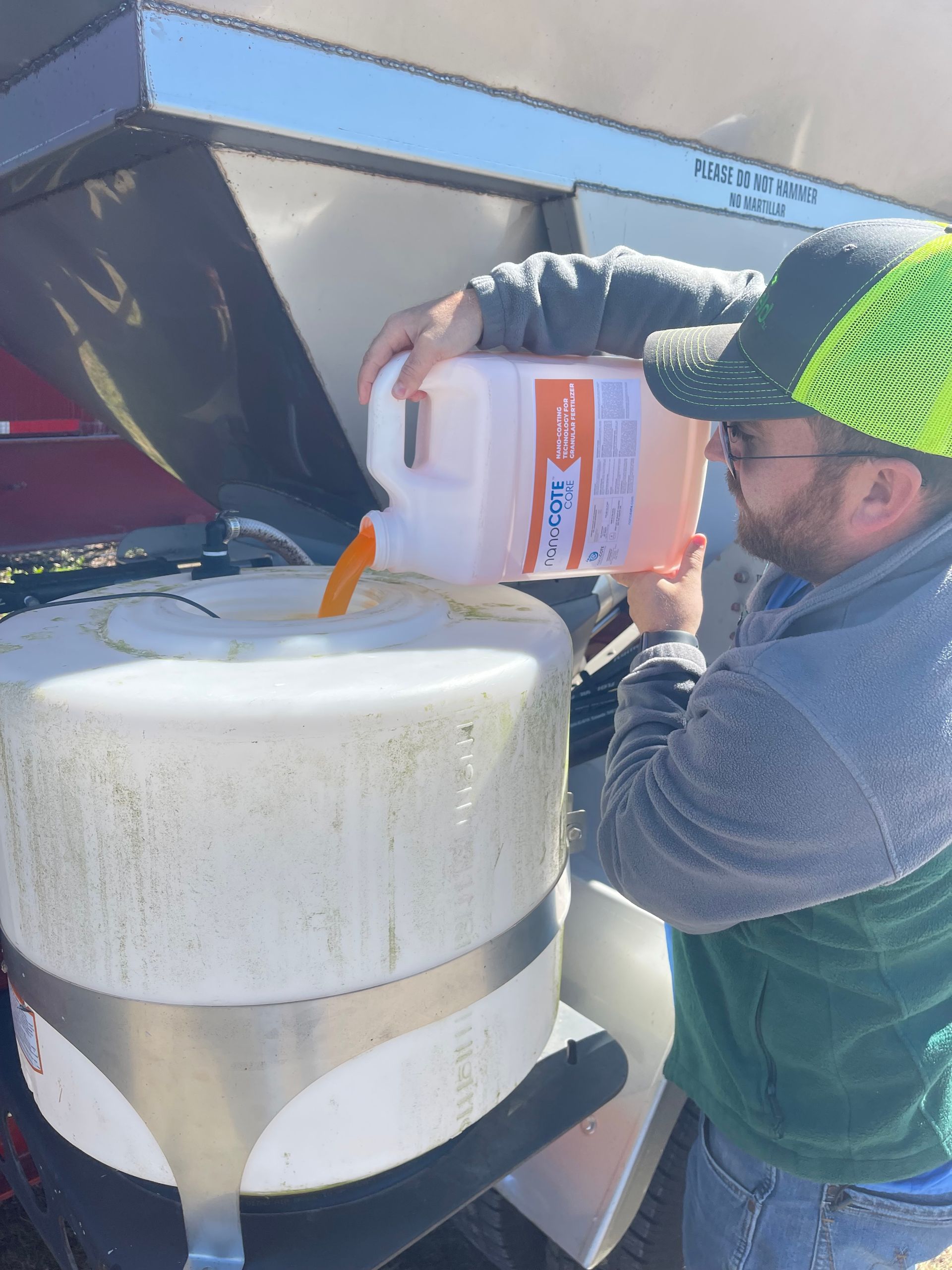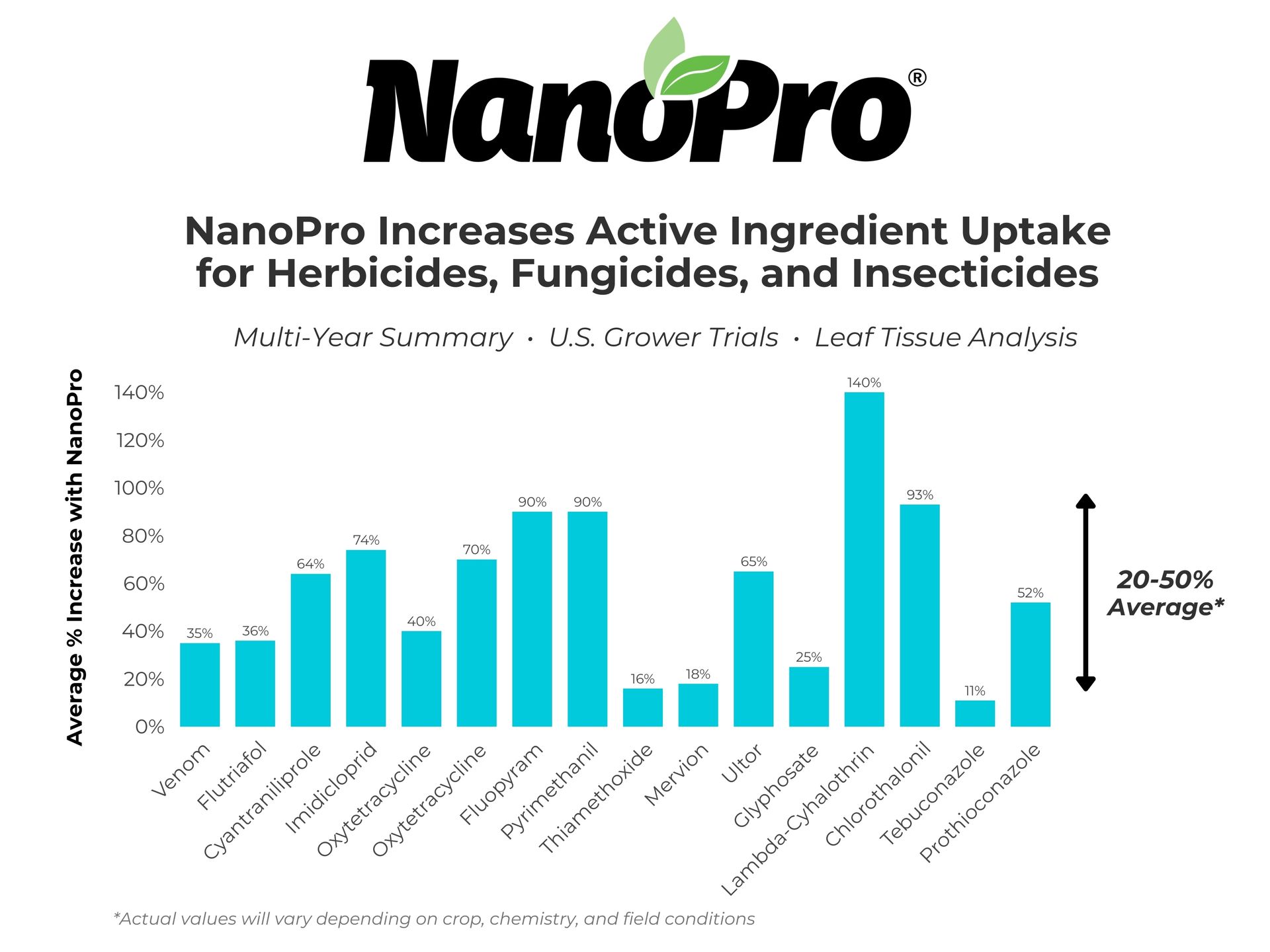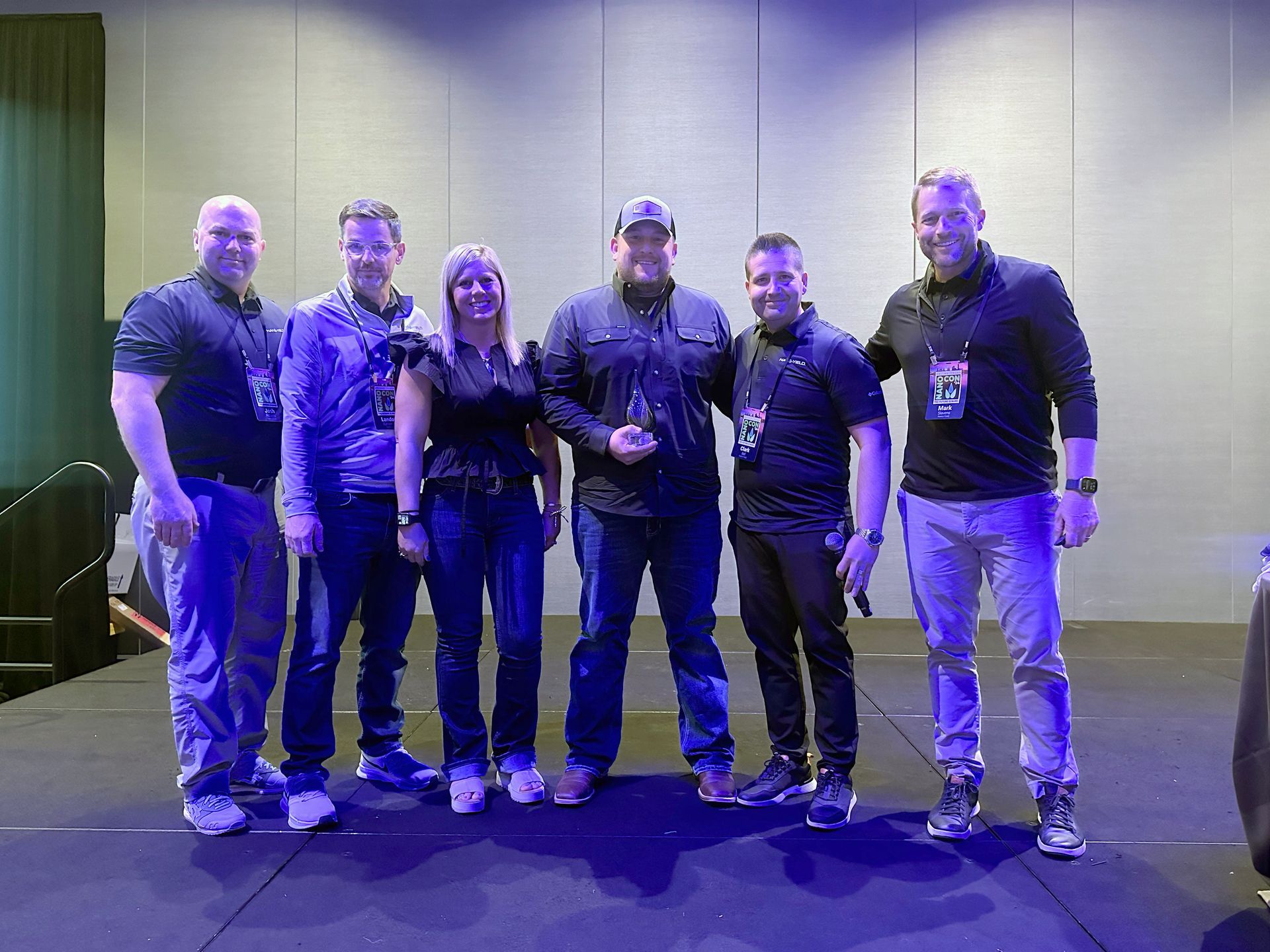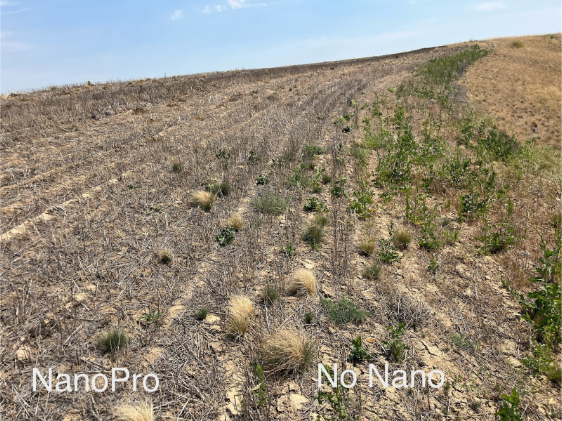NanoNews

Nano-Yield Ranks No. 2724 on the 2025 Inc. 5000 List of Fastest-Growing Private Companies in America
By Brooke Rosqvist
•
August 12, 2025
An 11-Year Journey of Innovation, Growth, and Impact in Agriculture.

By Garrett Olsen, Director of R&D
•
February 10, 2025
Nanoparticles have been making headlines for years due to their role in advanced agriculture technologies, medicine, and even food science. Recently, research has highlighted the presence of nanoparticles in one of the world’s most iconic beverages: Coca-Cola.
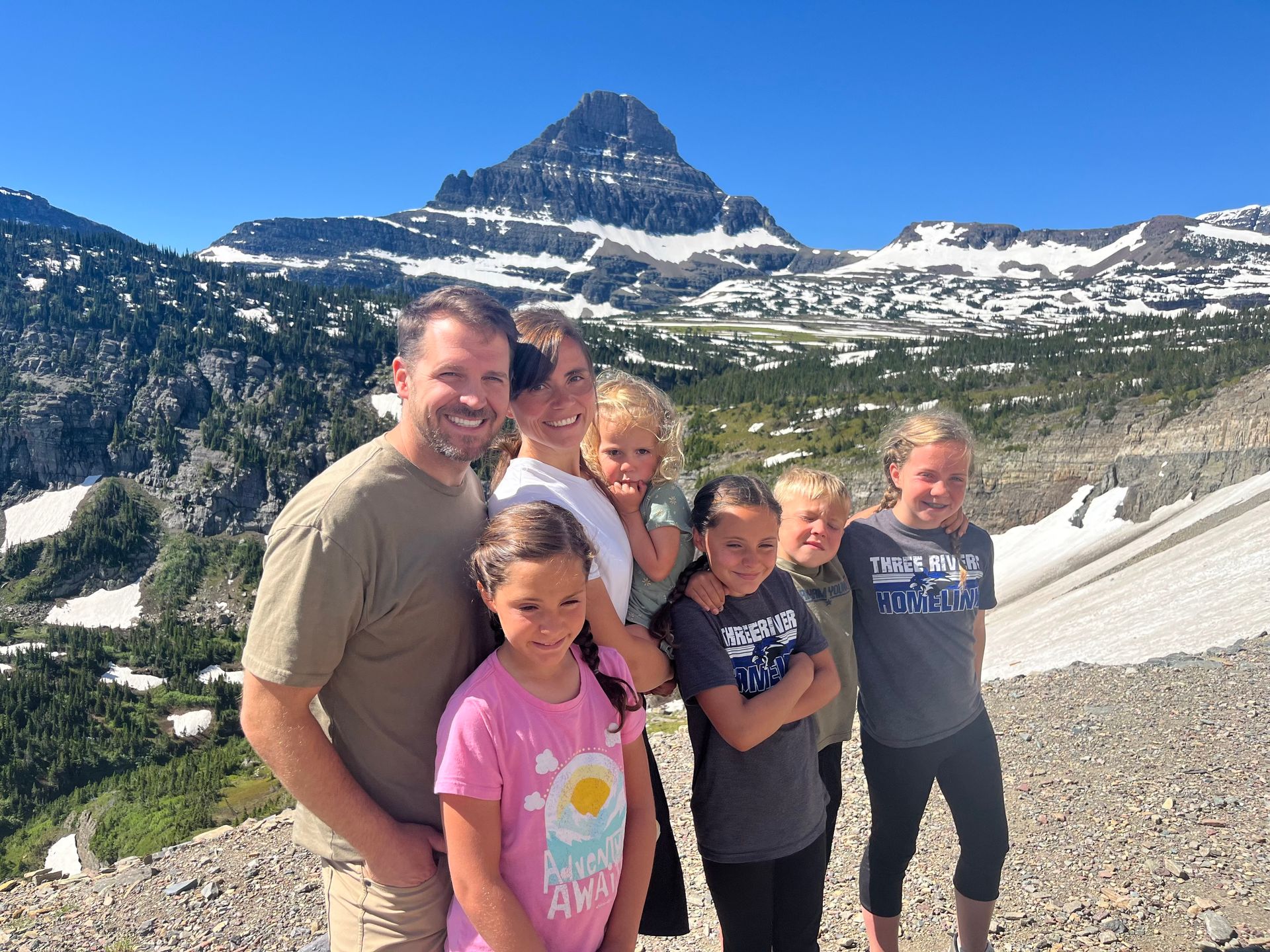
By Misty Kempton, Marketing Manager
•
January 30, 2025
This move is all about scaling NanoCote adoption faster. Dan’s agronomic expertise and industry connections make him the perfect fit to grow our dealer network and help more growers benefit from NanoCote Core’s game-changing nanoparticle technology.
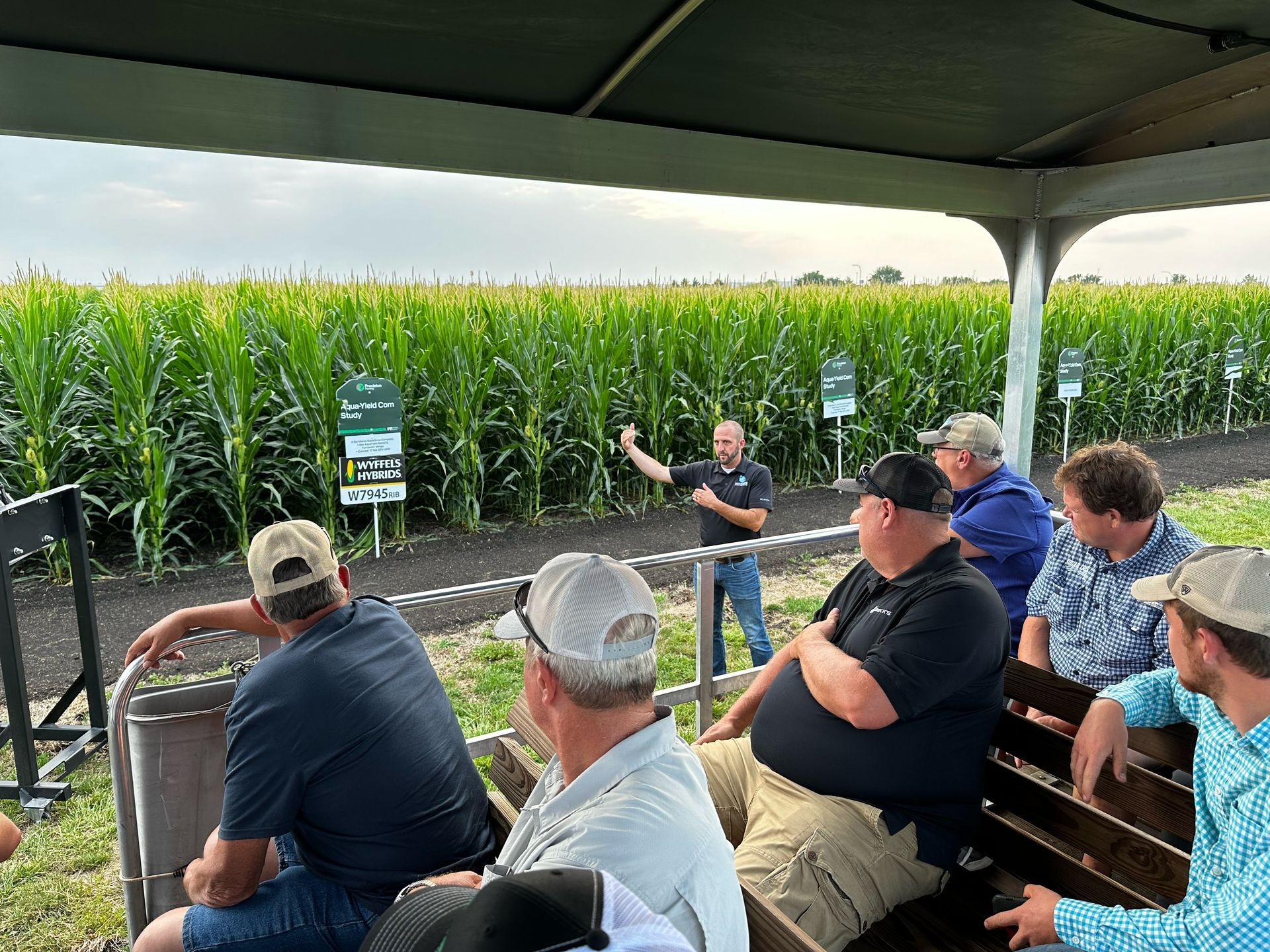
By Jenny Phillips, Director of Marketing
•
January 28, 2025
Last week Precision Planting started their annual Winter Conferences to roll out their data findings for the year. The Precision Technology Institute provides you with the chance to see the latest technologies in action and learn insights to apply on your own operation. Trials are conducted on 400+ acres of agronomic trials in Pontiac, IL. Nano-Yield is proud to be a partner for a third year, and is excited to showcase some of the trial results:
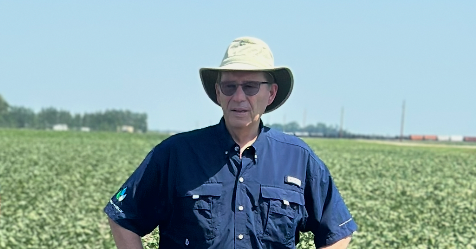
By Misty Kempton, Marketing Manager
•
January 15, 2025
As Warren Bell steps into retirement, we pause to celebrate a remarkable career that has left an indelible mark on the agricultural industry and all who have had the privilege of working alongside him. Warren's journey is one of perseverance, innovation, and a deep passion for farming—a story that has inspired countless individuals and transformed an entire industry.

By Jenny Phillips, Director of Marketing
•
November 21, 2024
Our annual NanoCons are something that our customers from around the world look forward to attending each year. Celebrating 10 years in the industry, NanoCon was hosted at the Gaylord Texan Resort & Convention Center located in Dallas, Texas on November 13-15. This 5th annual NanoCon was considered one of the best by many, as each year our company strives to improve upon the meeting with a focus on networking, education, and team building. Our customers appreciate the fast-paced, networking environment that the event provides, with a good mix of work and fun. The first evening of NanoCon is always a favorite; fantastic food and lots of energy as people network and meet fellow nanofans from all over the world as they anticipate an exciting week of activities.
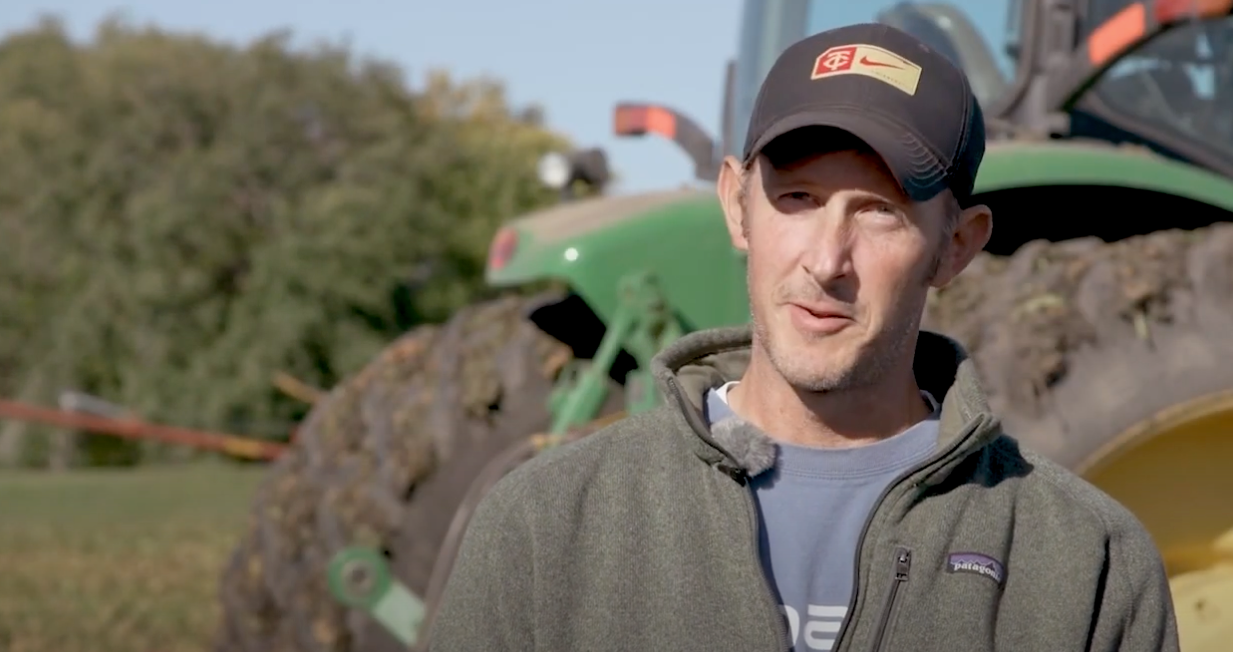
By Jenny Phillips, Director of Marketing
•
October 30, 2024
Sevrin Anderson, a sugar beet grower from Drayton, North Dakota, discusses another successful harvest after using nanotechnology and other key products to push yield and more sugar content. Anderson works with Erickson Custom Operations, distributor of Nano-Yield products.

By Jenny Phillips, Director of Marketing
•
October 29, 2024
“It’s like ketchup; you can put it on everything,” states Dibbern. The general application rate for aerial application is 4 oz/ac, based on crop and soil or in-season tissue testing. Clean, easy handling, and low use rates make nanoliquid® products easy to use and incorporate into many liquid programs for aerial application.

By PRESS RELEASE
•
October 3, 2024
Nano-Yield™ today announced it was named to the 2024 Utah 100, MountainWest Capital Network (MWCN)'s annual list of the fastest-growing companies in Utah. Nano-Yield ranked No. 68 out of 100 companies and was honored at the 30th annual Utah 100 Awards program, held at the Grand America Hotel in Salt Lake City.

By Jenny Phillips, Director of Marketing
•
September 10, 2024
Erickson Custom Operations of Colgate, ND recently hosted their annual field day where growers could learn more about innovative products like nanoliquid® technology. Sevrin Anderson of Drayton, ND discusses his success using Aqua-Yield products on his sugar beet farm.
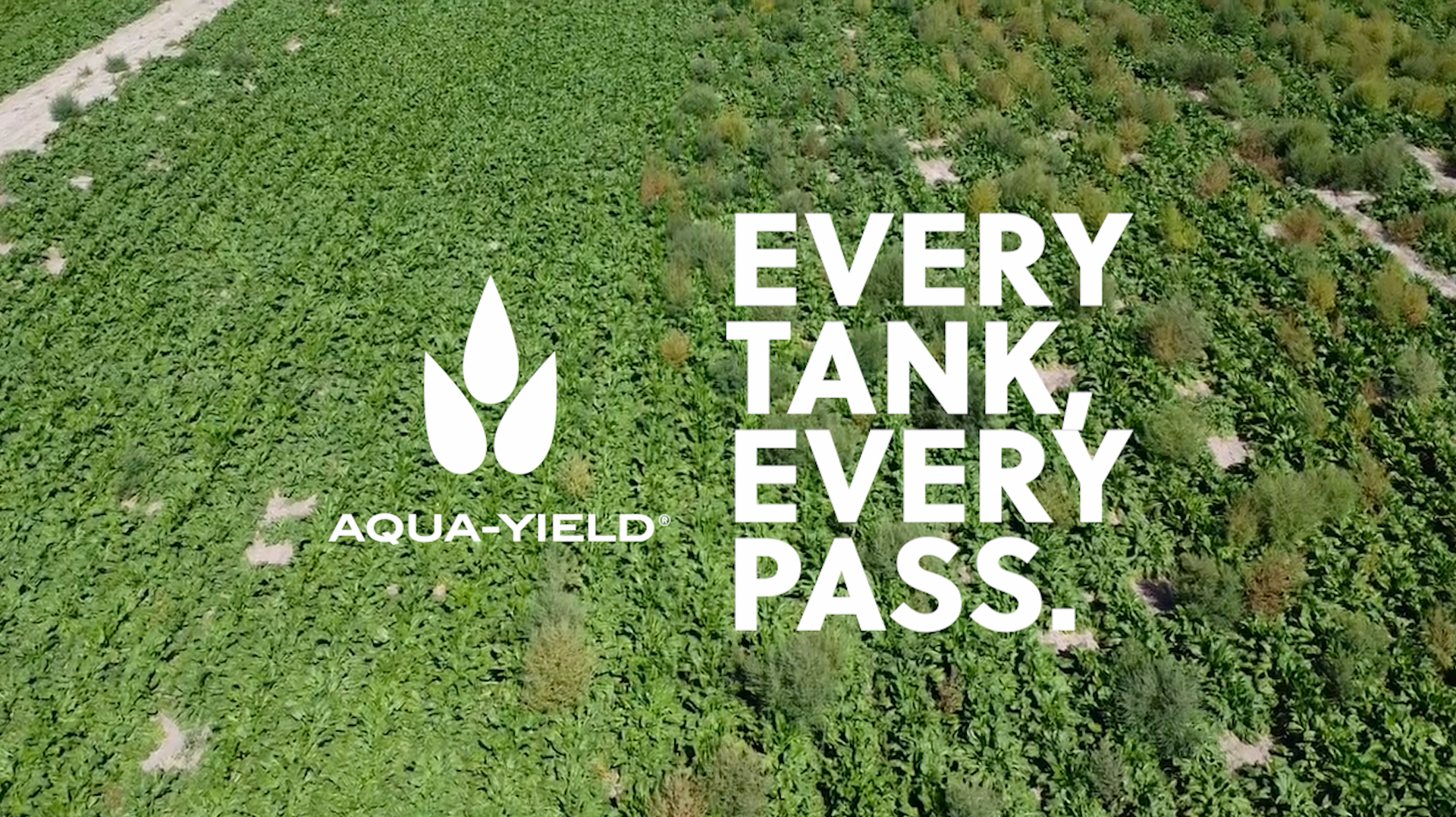
By Jenny Phillips, Director of Marketing
•
September 9, 2024
Using nanoliquid® technology on sugar beets has proven to be highly successful over the past several years across the states. Whether a grower is looking to boost sugar content or increase the efficiency of their crop protection, adding just 4 oz/ac of nanoliquid® technology to the tank has been an affordable and powerful tool in maximizing yield and sugar content.
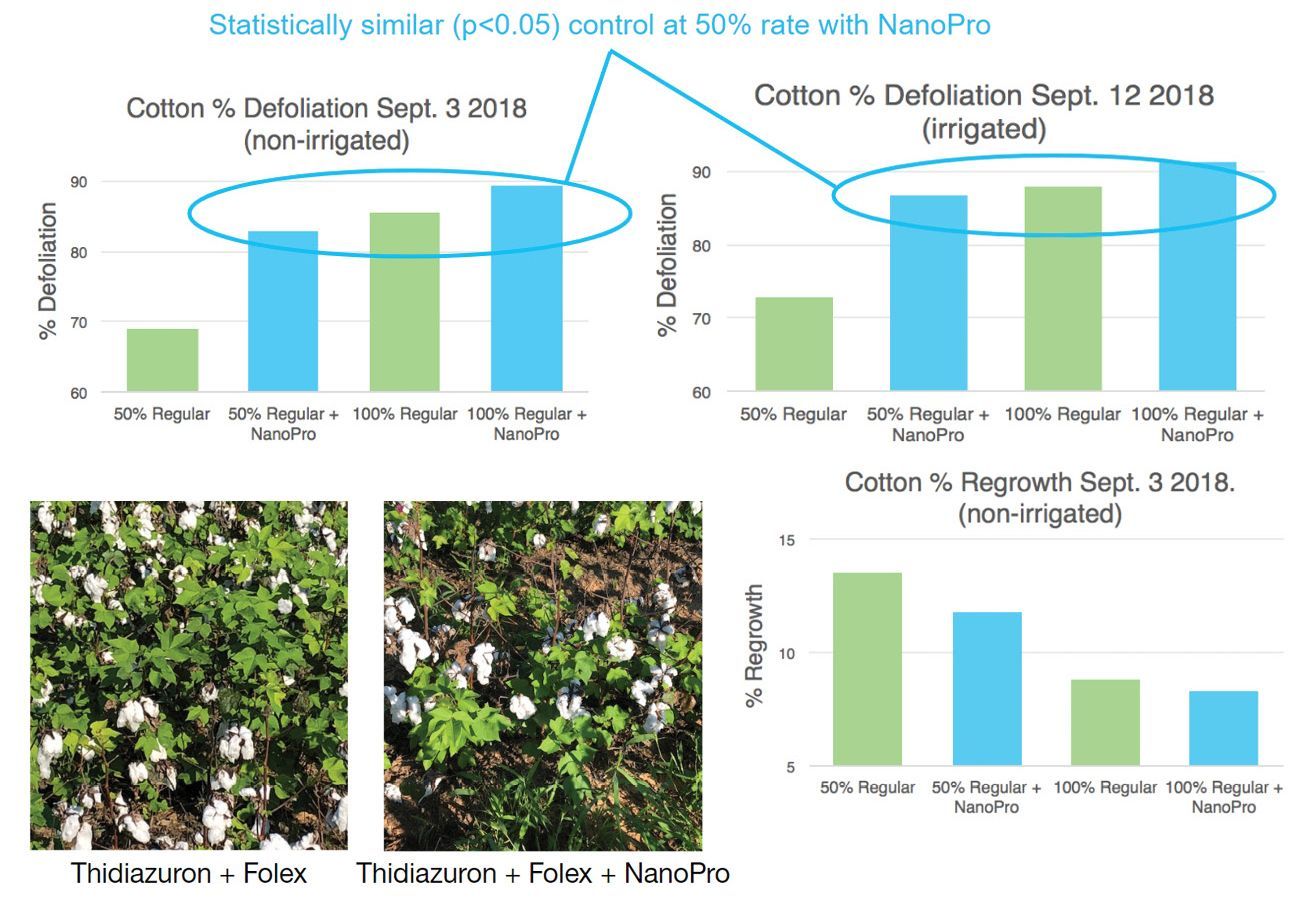
By Jenny Phillips, Director of Marketing
•
September 5, 2024
Applications of cotton defoliants with 4 oz/ac NanoPro® makes harvest easier, resulting in higher grade cotton. In irrigated and non-irrigated trials NanoPro is proven to significantly increase the efficiency of cotton defoliants. At less than $3.50/acre, cotton growers find NanoPro an affordable tool for faster defoliation and decreasing regrowth.

By Phil Dwyer, Turf NanoTech
•
August 15, 2024
At Cordova Bay Golf Course, excellence in turf management is more than a goal; it's a commitment. This commitment led us to trial Nano-Yield's innovative product, NanoCharge™, a product by Turf NanoTech™, during the summer of 2023. Our aim was to enhance our fairways' health and resilience, particularly against Dollar Spot disease, while maintaining overall turf quality. Here, we provide an in-depth analysis of our findings from this trial and explore how NanoCharge could revolutionize turf management practices.

By Jenny Phillips, Director of Marketing
•
August 14, 2024
NanoCote Advanced Coating technology is a powerful tool for farmers seeking to optimize nutrient management, improve crop yields, and minimize environmental impact. By addressing common challenges like nutrient loss and nitrogen volatilization, NanoCote sets a new standard for sustainable agriculture.

By Jenny Phillips, Director of Marketing
•
August 13, 2024
Nano-Yield is excited to announce that Mike Jackson has recently been promoted to Director of Sales for the Eastern US. Mike’s passion for the industry began at a young age, rooted in his experience raising 4-H pigs. This early connection to agriculture has flourished over the decades, guiding him through various sales, management, and leadership roles since 1996. His dedication and expertise have made him a valuable asset in the ag industry, where he has worked with multiple seed, chemistry, and fertilizer companies. With a BS in Ag Business Management from Purdue University, Mike’s practical and common-sense approach to business has earned him respect and admiration from both colleagues and customers alike. Mike is committed to building and maintaining strong relationships with his customers, as he sees these connections as the foundation of success in the industry. Mark Slavens, President of Nano-Yield, states “Mike’s passion for agriculture and his dedication to his team and customers are the driving forces behind his leadership as he strives to create a winning culture at Nano-Yield”. Mike states, “I believe in serving our customers and helping them be wildly successful with our products. The better we can lead our customers, the more success they will experience. People want to believe and be a part of something.” Mike has been crucial to the rapid growth and success of bringing nanotechnology products to the Midwest in just his three short years with Nano-Yield. Jenny Phillips, Director of Marketing for Nano-Yield, states, “Mike has been my colleague and mentor for over 6 years now, and I couldn’t imagine a more deserving person to fulfill this role. His dedication to his customers, his fellow salesmen, and to this industry is unmatched.” Mike lives in central Indiana with his wife Heather and four daughters. When he’s not in the office you can find him on the golf course or spending time with his family.



